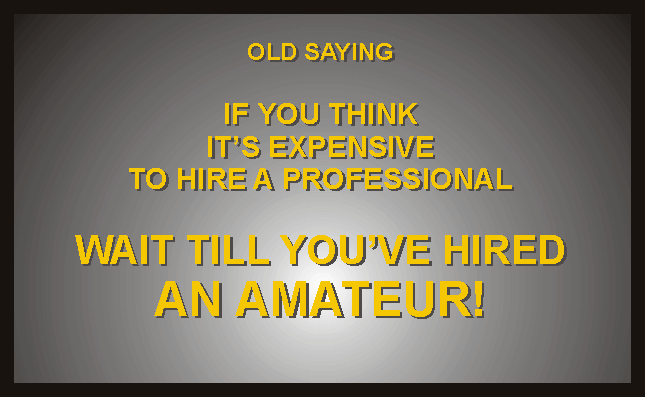After it goes wrong: How to get back
on that horse and sell your business

Disappointments can hijack owners' hopes when selling a business.
Even so, around half seem tempted into 'do-it-yourself' ie. selling with minimum support. If this goes wrong, it can be very difficult to revitalise your strength for another go.
Here is a survey of that 'disappointed-but-determined-to-try-again' landscape.
After It Went Wrong
Below is a true story with the names changed to protect everyone.
Arthur worked hard for 28 years. He built a large engineering business making over £500,000 in post-tax profit – worth around £15m. He was rightly proud of his achievement.
Over the last couple of years he's been approached by several buyers. They have confirmed his achievement. And, charmed by the vision of retirement and luxury, he thought he could sell the business and he decided to manage the process himself.
Now 2 years later – and £30K poorer – he has not sold the business.
Eventually, disappointed and desperate, he went to a business transfer professional. He felt all his work in building up his company was being trashed. He feared he would never get to the retirement dream he'd been working towards this last 2 years.
Although he wanted someone to help him, he was shocked by the fees the professionals mentioned. His first instinct was to beat a hasty retreat.
What was he to do?

What Next?
To summarise Arthur's three main options:
1. Give up.
Around 80% of businesses never do get sold, for a wide variety of reasons.
Even business that seem attractive to buyers initially, turn out to have too many difficulties.
And sellers can falter during the process, especially after several disappointments. Humans will do more to avoid a second loss than to regain the first loss often by taking flight. Even if other people would say it is 'only being let down' by buyers, the experience can challenge the years of emotional investment they have put into building the business up.
2. Keep going with the DIY approach.
Three good books from three continents (you'll have to interpret their jargon a bit) you can learn a lot from are:
◦ How To Sell Your Business For The Price You Want, Mark Blayney
◦ Sell Your Business For More Than It's Worth, Michelle Seiler-Tucker
◦ How To Run Your Business So You Can Leave It In Style, Arthur H Brown
3. Engage a professional.
You know you will have to pay their fees, with an upfront deposit. For a firm the size of Arthur's, that could total £50K. Is that good money after bad?
But you'll remember that from his or her point of view, you didn't spend any of the money you've lost previously with his or her services. It's a fresh start with an expert.
Selling your house and moving is one of the top three most stressful life experiences. Selling your business is probably a lot more stressful than selling a house.

Why Do Things Go Wrong?
Looking back at Arthur's experience – with the benefit of hindsight – let's flag up three of the most important issues.
Changing Your Game
Entrepreneurs tend to have a 'roll up your sleeves and get on with it' attitude. This can-do attitude has evidently worked well so far in building the business, but with their can-do attitude owners can easily underestimate how enormously different selling a business is.
Once caught by the vision of riches, retirement and/or a new project, that can take over from the original vision for the business. It can be distracting and when things go wrong, the feeling of loss can be very demoralising.
But selling your business is a very different game than selling your product or services. Owners can easily underestimate how enormously different it is, and that can lead to a variety of risks that can scupper a sale or allow unfair results.
All this means that it can be a major effort of will to change your approach to bring in intermediaries. Talk to your trusted friends, family and current advisers about this: is it an expensive way to lose control or a fairly-paid source of relevant help?
After all, Arthur cannot have built up such a good business by leaving his clients uncertain about the real value of his goods and services!

Finding Good Advisers
Poor advice, conflicting advice or no advice are huge dangers. It's important to recognise that it will be impossible for you to master tax issues, legal issues, accounting issues, marketing and negotiating in the time you have available. Not only that, but the same applies to many of your current advisers – they may have helped well during your operational growth, but (to say it again!) selling the business is entirely different.
Ironically, Estate Agents are regulated to sell your house. But business brokers aren't regulated. In real life, this means you almost need to take more care over instructing a broker than you do over agreeing the final deal!
Even after several attempts to sell, it can be difficult to judge who the best advisers are. Too many High Street professionals think they know enough about the subject to learn on the job. But that risks fatal errors early in the process that can cost you dearly (but not them!).
Even among people and agencies calling themselves exit advisers, business transfer agents or brokers there are variations in competence. So, DO NOT sign with the first one you talk to. Check theitabb.org directory of business brokers to find a central listing of possible helpers and do some due diligence on them. Investigate 30-50 firms, make a shortlist and interview about 10 or so in person before booking second interviews with your top three.
Dealing With Deception
Not all buyers are honest. Flourishing businesses attract people with very different intentions.
• Some only want to uncover your trade secrets, intellectual property, or poach-able staff.
• Others want to buy your business for next-to-nothing, and perhaps keep you working too.
• And a few aim to asset-strip, firing employees and leaving you feeling guilty about that.
Of course, some honest and well-intentioned buyers get halfway through the process and suddenly get pulled up short when they discover they can't raise the funds they thought they could. They may have been let down too. Or they may be first-time buyers who have underestimated financial factors on their side.
Good advisers have a list of assessment questions to ask would-be buyers early in the process to identify the realistic candidates. They can weed out the suspicious non-starters. And they are likely to be able to find more suitable potential buyers to give you choice.

How Professionals Help
When you work in one business for many years you can build up habits of filtering out the stable, reliable parts and focussing on problem-solving. So you do not have an outsider's perspective on the valuable parts that buyers might want to separate and extract. Bringing in a professional outsider to be on your side will help you maximise results and protect your valuables.
There are many benefits that a competent professional brings. Here are three main ones:
Avoid Battle Exhaustion
It's a long game so stay free to continue running the business, and keep building its sale value. The process often takes 1000 hours over a year or more – in fits and starts. Part of the service is a protection from the grind, the millions of details and the up-and-down stress.
Minimise Risks
Avoid hidden dangers and maximise your results. Arthur's failures could have happened with a professional as well, it's true. But with their expertise and experience you are far more likely to minimise your risks right from the start. And also they can help with marketing advice on ways to boost your end-value and at the same time improve your attractiveness to the right sort of buyer.
Improve Success Probability
Gain more control and speed up the process. Designing marketing messages to attract your Ideal Buyer, a broker can raise your achievable value by promoting your value to the buyer's own goals (eg synergy savings or empire-building). And then by knowing the negotiation landscape, they are less likely to give away more than you would wish.
How Valuable Professionals Can Be
It's important to recognise what professional fees pay for: 1000 hours of investigation, documentation and negotiation, is like 6 months fulltime equivalent of managing the balance between best value and probability of completing.
And other professionals like management consultants can help to lift your demonstrable value: Profit Boosting: before and after the sale of your business.
Having been through the process before (at least in part) you will know whether you really have that 1,000+ hours to learn the ropes while still running your business. Trying to do that, like Arthur did, leaves you at great risk of a poor result – or none at all.
Professional fees are a small percentage of the results of a successful sale. It's true that they cannot guarantee the sale and that if it falls through the professional has likely put time and expertise into it already.
Remember that your aim is more than just gaining a sale. BHS was sold for £1 a few years ago. Your aim is to get maximum value, minimum negative implications and a clear timeline for the transition. As ever, the devil is in the details – and that's where brokers bring you real value.
Arthur may have thought he would save money by doing it himself. But as it turns out, he hasn't.
Where Do I Find Competent Help?
How can you find the best professional without a huge trial-and-error learning curve?
There are 1000+ business brokers, business transfer agents, corporate finance firms and other agencies in the UK helping business owners sell their businesses.
This industry has no statutory regulation so you have little or no protection from being ripped off other than your own due diligence.
First, check: do you really need a broker?
If your business has an annual profits of under £50K, you may not need one, apart from a solicitor to draw up the contract of sale. Word of mouth, ads in local papers or online marketplaces may do you well enough. And this will save you money, though it will still be hard work.
More, your small business may not be very attractive to brokers. It can take nearly as much work to sell a small business as a large one, so if there isn't a reasonable fee in it for the broker, why is he going to spend several hundred hours on your sale. So you are at risk of those agencies who ask for a large deposit to cover their own risks and yet provide little means for you to audit their work on your behalf.
Second, would a specialist work best?
For larger businesses like Arthur's, it can often help to use a sector specialist. But you need to take a few precautions to protect against any cosy relationships between broker and buyer/s.
Always keep in mind that this is a new learning curve and your benefit:loss equation has big implications. Seek out personal advice, hints and tips – sometimes the valuable is not in the obvious!
Third, consider finding a mentor
It can be useful to have an independent and uninvolved advisor with relevant experience to ask about the process. “Do they really have to...?”, “Am I right to feel frustrated?” and “What am I missing?” are all good questions.
One particularly difficult question is: “Should I attend all broker-buyer meetings?”. There are benefits to Yes and to No, and it takes some exploring before coming to a judgement on this.
Good Luck!
We hope this exploration of the landscape helps you regather your courage and determination. Bear in mind that the value of your business is only what you can persuade someone to pay for it – until then all valuations are only estimates.
And it takes a good broker on your side to ensure the business gets sold and that you get a good price for it.
